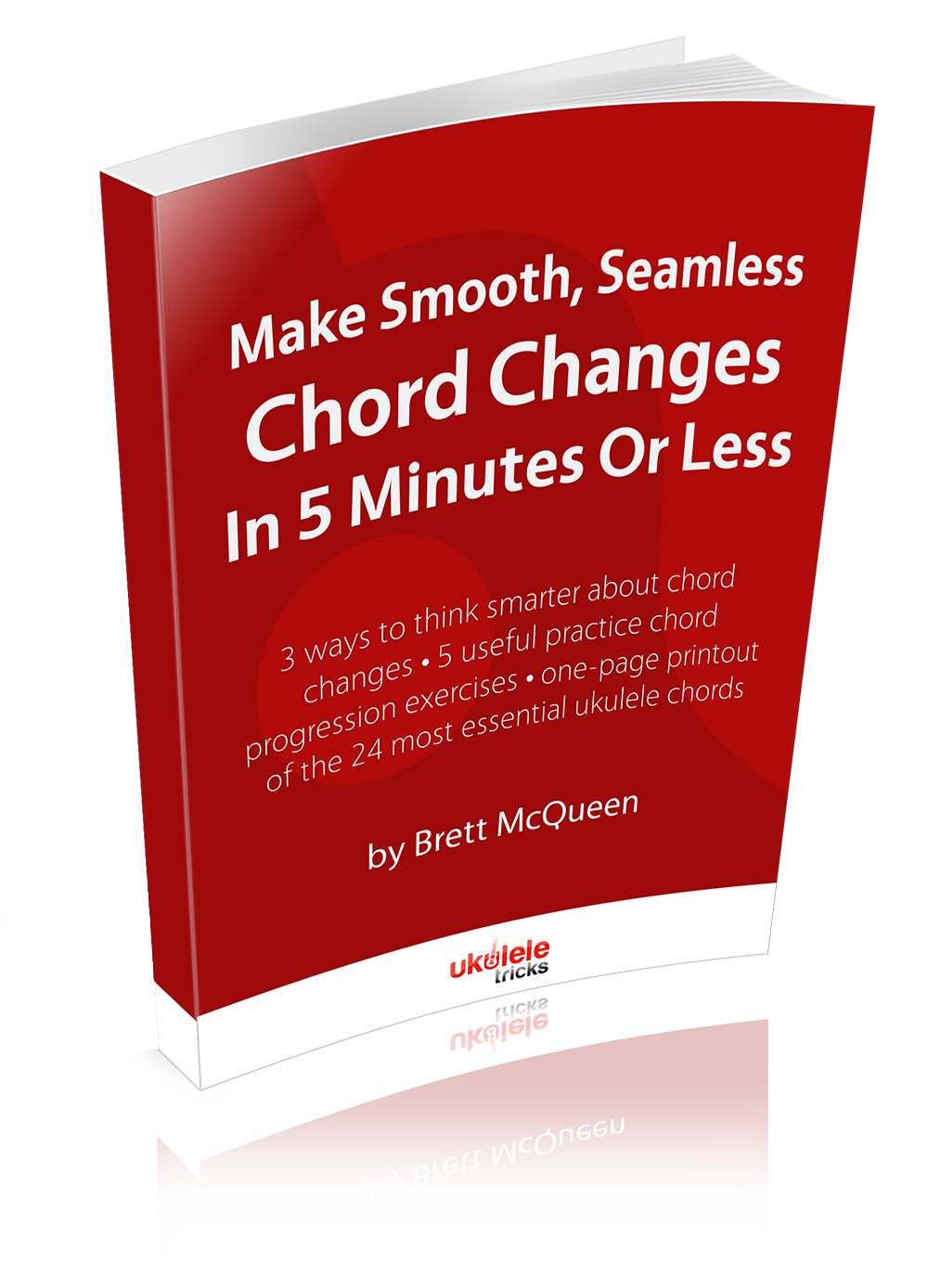How To Play The F#6 Ukulele Chord
To play the F#6 chord, place the middle finger on the 3rd fret of the top g-string, ring finger on the 3rd fret of the C-string, index finger on the 2nd fret of the E-string, and little finger on the 4th fret of the bottom A-string.
F#6 Ukulele Chord Explanation
The F#6 chord (also known as the Gb6 chord) contains the notes F#-A#-C#-D#.
To build an F#6 chord, take the added sixth chord formula (1-3-5-6) and apply it to the F# major scale (F#, G#, A#, B, C#, D#, E#).
Identify the first, third, fifth, and sixth scale degrees in the F# major scale, which are F#-A#-C#-D#, giving you an F#6 chord.
Note: In the F# major scale a sharp is added to E. On the piano, there are no black "sharp" keys, but music theory rules dictate that each scale degree be represented by a different letter, which is the reason we identify the seventh scale degree as E#. The enharmonic equivalent of E# is F (that is to say, E# = F).
With that said, some prefer to view the key of F# major as the key of Gb major, so to build a Gb6 chord, take the added sixth chord formula (1-3-5-6) and apply it to the Gb major scale (Gb, Ab, Bb, Cb, Db, Eb, F).
Identify the first, third, fifth, and sixth scale degrees in the Gb major scale, which are Gb-Bb-Db-Eb, giving you a Gb6 chord.
Having a tough time smoothly changing chords? Get the free book.

Get the secrets to making smooth chord changes on ukulele without hesitating or pausing with the free book Make Smooth, Seamless Chord Changes In 5 Minutes Or Less. You learn:
- The 3 ways to think smarter about chord changes
- A full breakdown of the Hover Technique using popular ukulele chords as examples
- 5 useful practice chord progression exercises
- 24 Most-Essential Ukulele Chords One-Page Printout
Enter your details and I'll send you the free book:
